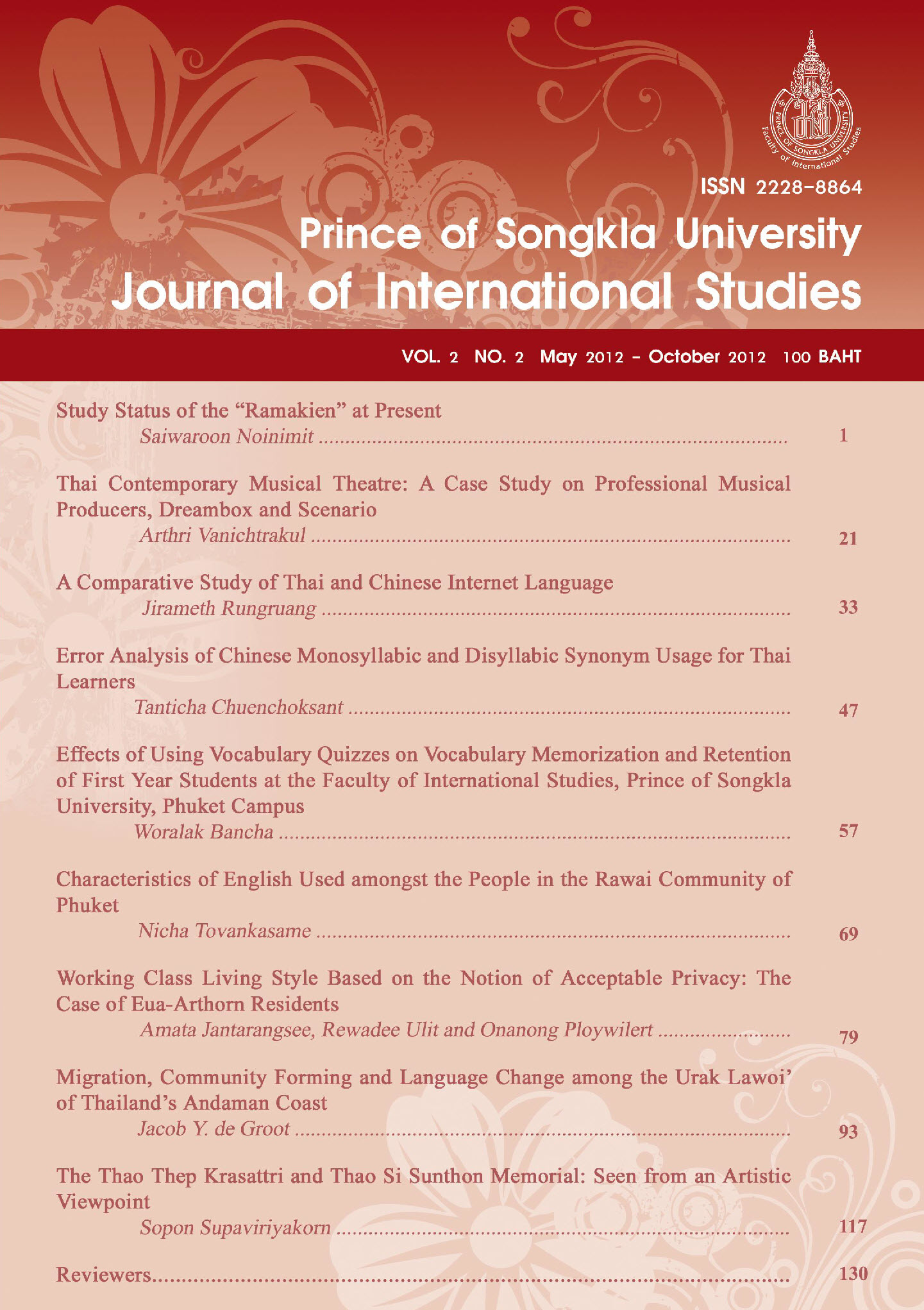Effects of Using Vocabulary Quizzes on Vocabulary Memorization and Retention of First Year Students at the Faculty of International Studies, Prince of Songkla University, Phuket
Main Article Content
Abstract
This study investigated the effectiveness of vocabulary quizzes on vocabulary memori zation and retention. Vocabulary memorization and retention were measured using a pre test, a post-test and a delayed post-test.
The subjects were 22 first year students at the Faculty of International Studies, Prince of Songkla University, Phuket Campus. The students attended an English for Reading course with the target vocabulary for 20 lessons. In each lesson, students studied the target vocabulary by themselves and in class, the teacher checked if students memorized the correct meanings and checked if they could answer vocabulary exercises in the course textbook before having them take vocabulary quizzes after every lesson.
A pre-test was given at the beginning of the semester and a post-test was administered during the last period to examine whether students could memorize vocabulary. A delayed post-test was administered 28 days after the last lesson to investigate if vocabulary could be retained in the long term memory. Differences between the results of the pre-test and the post-test and those of the post-test and the delayed post-test were measured using mean differences and a T-test.
The results derived from the mean score of the pre-test and the post-test were significantly different at 0.000 (p<.05), and the post-test and the delayed post-test showed no statistically significant differences at 0.025 (p<.05). This indicated that using vocabulary quizzes could help students memorize vocabulary but could not lead to effective vocabulary retention.
Article Details
Statements and opinions expressed in articles herein are those of the authors and do not necessarily reflect the position of the editors or publisher.
Article, information, text, image, etc. which are published in Journal of International Studies, belong to Journal of International Studies. If anybody or any organization would like to use part or whole of them, they must receive written permission from Journal of International Studies before usage.
References
Biemiller, A. (1999). Language and reading success. Brookline: Cambridge University Press.
Davis, F. B. (1944). Fundamental factors of comprehension in reading. Psychometrika (9), 185-197.
Klatzky, R. L. (1980). Human memory: structures and processes. New York: W.H. Freeman and Company.
Lightbown, P. and Spada, N. (1993). How languages are learned. Oxford: Oxford University Press.
McGaugh, L. (1973). Learning and Memory. San Francisco: Albon Publishing Company.
Singer, H. A. (1965). A developmental model of speed of reading in grades 3 throug 6. Reading Research Quarterly, 1, 29-49.
Silakwaw, W. (1995). A Comparative Study of Prathomsuksa VI Students'Acheivement and Retention in Learning English Vocabulary through Exercises with and without Games.
Unpublished master's thesis, Srinakarintharawirot University Thailand Thornbury, S. (2002). How to Teach Vocabulary. Essex: Pearson Education Limited


